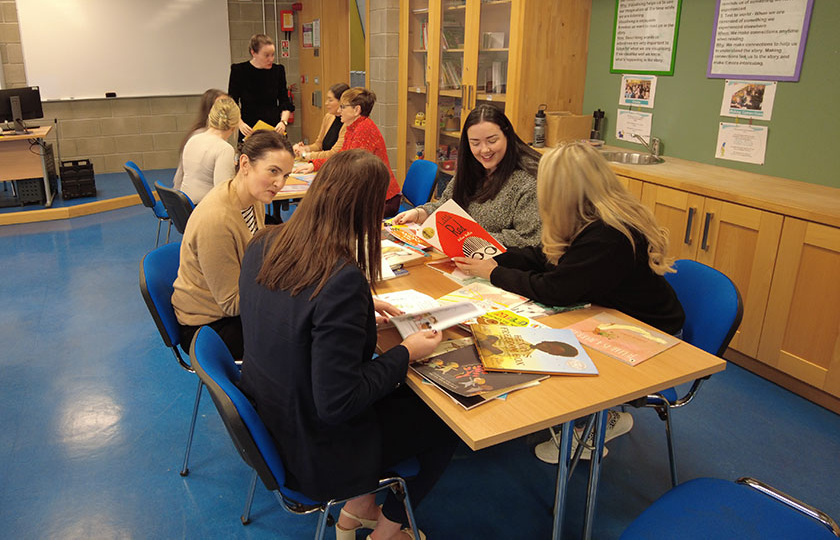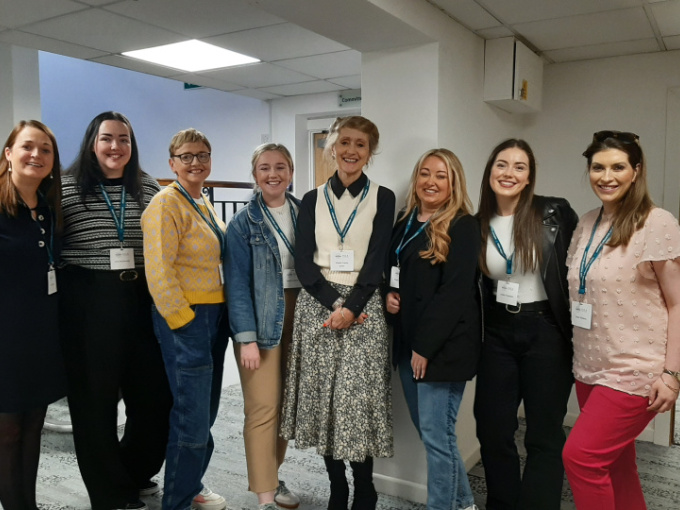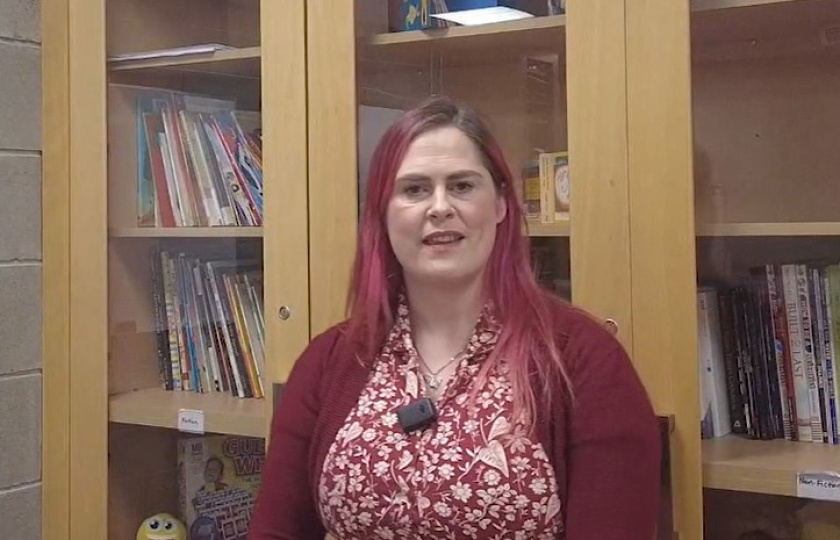Available: Part-time
NFQ Level: M Ed 9 / PhD 10*
Duration: 2 years (MEd)
Location: MIC Limerick
Delivery Mode:
Blended - a monthly in-person commitment on Saturdays alongside online sessions/tutorials.
Assessment:
Assignments predominantly
- Programme Overview
- Programme Content
- Entry Requirements
- How to Apply
- Ask a Question
Programme Overview
The Department of Language and Literacy Education, Mary Immaculate College is pleased to announce a M Ed / Structured PhD in Literacy Education in response to recommendations for high quality professional development in effective literacy instructional practice in recent policy reports at national level.
Key Features
The M Ed / Structured PhD in Literacy Education fosters the development of research, critical thinking and communication skills within the context of the evolving nature of literacy in the twenty first century.
In line with national and international recommendations, this programme seeks to promote literacy leaders within schools and communities whose literacy knowledge reflects the highest standards of academic rigour. It is of particular interest to classroom teachers, aspiring literacy leaders, school principals, policy makers and those engaged in the provision of continued professional development in the area of Literacy Education.
The programme is delivered through blended learning approaches and provides participants with the opportunity, in a collaborative setting, to reflect critically and synthesise key issues, debates, and controversies in Literacy Education. Evaluative feedback provided below.
The M Ed in Literacy Education programme is designed for people with a committed interest in literacy education.


"The course has supported me to transition to the next academic level. I have always enjoyed reading research but found the prospect of a masters very daunting and overwhelming. This course, being so linked to the reality of the teaching profession, while simultaneously pushing us to explore the world of research further has been the perfect catalyst in providing support for me to succeed on my journey this year. It has provided me with more confidence at a professional level where I can give advice to colleagues, speak about the area of literacy in interviews, etc."
"I just want to express how grateful I am for the opportunity to study with Josie and be a part of this group. It was transformative for my learning, teaching, and life. Looking back, I can’t believe how much learning took place in just one year. People like Josie are life’s rare treasures, and I feel incredibly fortunate to have been part of such a vibrant learning community."
"Each of the assignments played a big role in deepening my understanding of literacy-related teaching, starting with how to access quality papers, how to critique them, and to draw the important information from them. Each of the following modules then contributed much to my teaching, e.g., the critical role of oral language in literacy development, the addressing of tough social issues through the medium of novels and picture books, approaches to promotion of inclusion within the classroom and the entire school community, and the importance of representation in picture books."
"Looking back over the year, I can see the value and learning in every assignment and module. There is clearly a well thought out plan and each module builds on the one before so its a cohesive program."
"I have learned so much this year. I would never have anticipated the learning and thirst for knowledge that I have gained."
External Examiner Report (2023-24):
As in previous years, the students were, without reservation, extremely positive about the smooth-running of the programme, the level of academic challenge, the cohesion of the programme, and the commitment of the academic team.
Student Testimonial
Ross O' Connor - M Ed in Literacy Education
I decided to apply for the M Ed in Literacy Education as I have always been interested in language learning. Before becoming a teacher, I completed an undergraduate degree in languages and was always fascinated by language acquisition. When I researched the course, I liked that there were many different aspects to literacy education, and it felt like a good fit for me. I am passionate about the area of Teaching English as an Additional Language and there seemed to be good scope to explore this in greater details.
The course was filled with practical advice and suggestions to apply in the classroom. I really enjoyed getting lectures from Speech and Language therapists and specialists in all areas of literacy as I found that there was so much opportunity to ask questions that I had around teaching language in general.

NFQ Levels
*Graduate Certificates are Level 9 Minor Awards, Graduate Diplomas and Masters are Level 9 Major Awards and PhDs are Level 10 Major Awards on the National Framework of Qualifications (NFQ), awarded by the University of Limerick.
- Programme Overview
- Programme Content
- Entry Requirements
- How to Apply
- Ask a Question




